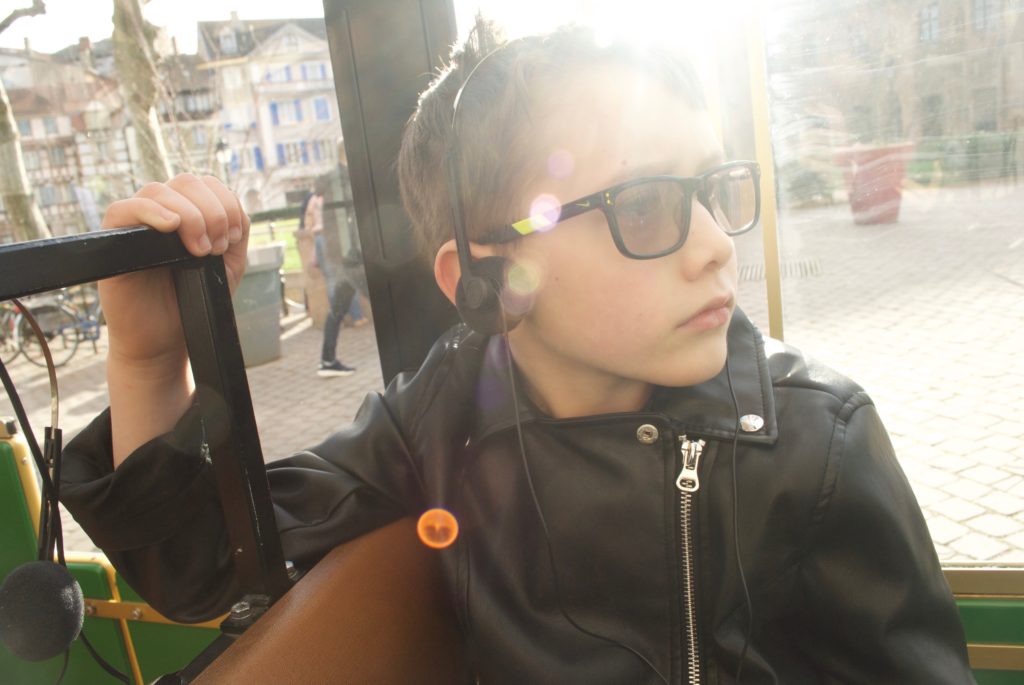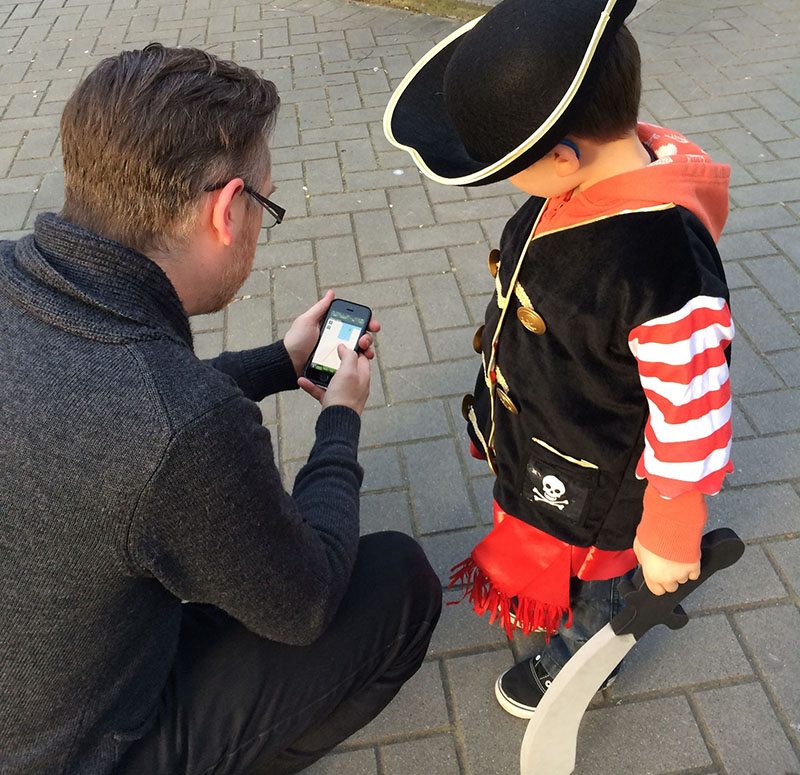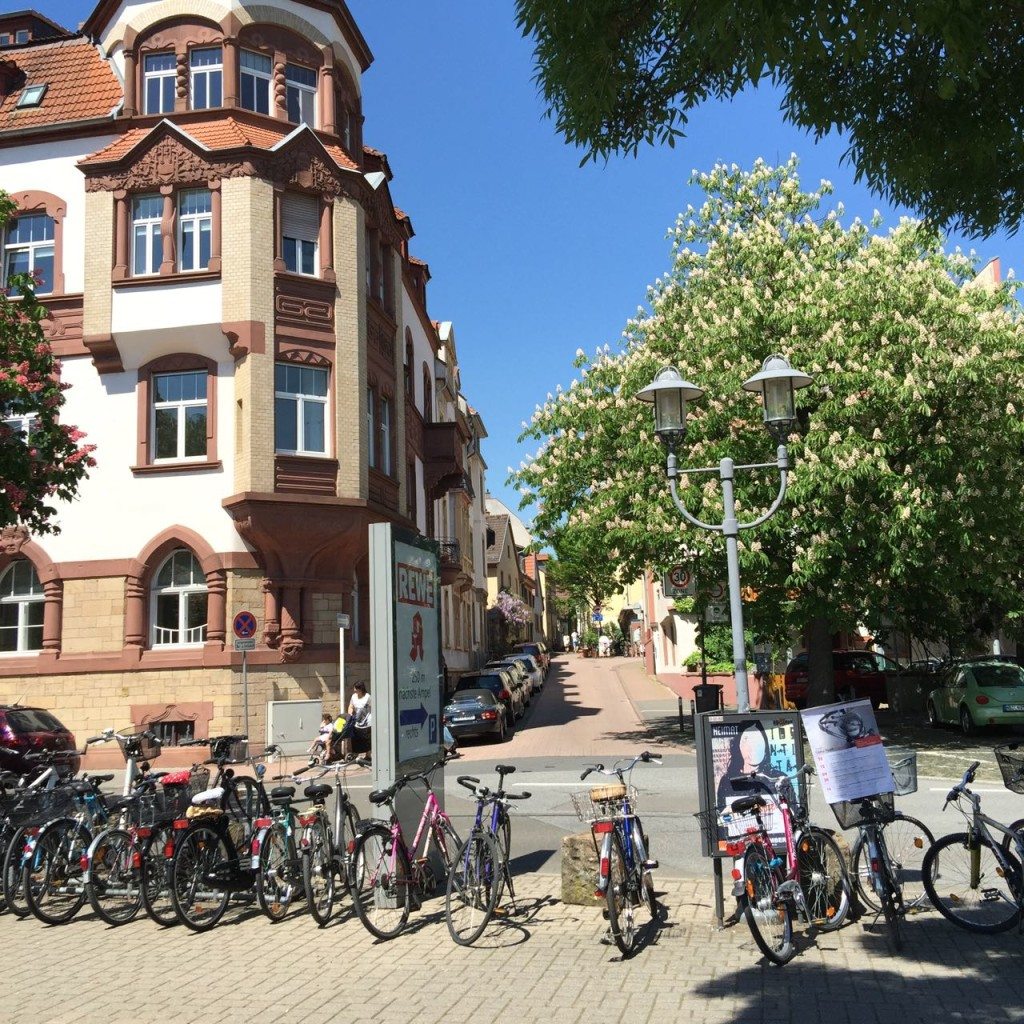I think the question most people ask me these days is, ‘How is your son adjusting?’
It’s a funny one, moving countries with a child. You’re forced to get a lot of things sorted out with them standing right there, but you also can’t lose it in front of them. This whole moving to another continent was your idea, you can’t freak out. Obviously there were times we were all tired, there was more iPad and Netflix than was probably good for anyone, and I think there was a two-week period where he ate mostly brezel. But, he turned seven a month after we moved to Germany, and I think it was a good time to do it.
Does he ask about ‘home’?
No, actually. We talk about Vancouver, the last city we lived in and the only one he remembers, but we don’t call it home. I was careful not to do that right from the beginning, for several reasons. Firstly, while I love Vancouver, it is only one home to me, London being a very close second in my heart. Secondly, I’m not sure when we will move back, and I don’t want to spend our entire time in Germany with him waiting to leave. This is our home now. He tells stories of things that happened when we lived in Vancouver. There were a few instances of, ‘Why did we have to move here?’ but relatively few. Thankfully.
The food is a big one
Even when moving to a different Western country, the food changes will feel huge to a smaller person. To be honest, they are huge to everyone, but most adults can manage it. My son is a moderately picky eater – he has about 10 foods he likes and most variations on those he will try in good faith. But sometimes the local version just doesn’t fly – Käsespätzle, the German analogue to macaroni and cheese, was a flop. I love it, but the eggy, odd-shaped ‘noodles’ didn’t fly with a seven year old. Thankfully, broccoli and carrots are on his list, and I can steam those anywhere. Maybe it’s because he transitioned to solid foods when we lived in the UK and sausage was one of his first, but he’s pretty game to eat most wurst. This is key, as he doesn’t like potatoes. I know. I KNOW. You gotta love at least the pig or the potato in the Deutschland, or life will be tough.
School is school
The school situation is an interesting one. I have met other expats who think I’m crazy for not putting him in the International School, and others who think I’m equally nuts for not just going for the local German state school. We split the difference, and found a bilingual private school that runs the local curriculum where he learns German and English. The students are 80% local German kids, so the playground language is generally German, and we pay for extra German classes twice a week. It’s an interesting mix of kids of expat parents who have moved here for work (about equally split from English-speaking families and families from India who speak Hindi and English and probably two other languages as well), German families who have lived abroad and want to keep their children’s English up (Singapore, Japan, the US), local German families with one very fluent English-speaking parent, and some local German families who just want more English instruction. Our son went to French immersion school in Canada, so he’s very used to his whole school experience being in an language he isn’t fluent in. He’s thrilled that some of his classroom time is in English now, and he’s made a good friend, which has had more impact than any of the language stuff. The settling-in period with school has been about as rocky as it was when he started French immersion, and in some ways less difficult. He’s still a bit hesitant to speak German, though I hear him shouting at his friends in German when I come to pick him up. His aural comprehension is amazing though, I’m jealous.
Elementary school kids go to Grundschule, and it starts when your child is 6 years old. No school is mandatory before that point, but most kids go to Kita, which is a bit of a kindergarten/preschool situation. School runs through the morning, with different school starting at different times, but our school begins at 8:45am, and goes until 1pm. I have the option of letting him eat at school, and then staying for ‘homework time’ afterwards, where they do their homework while a teacher supervises. When they’re finished homework, they can play inside, and at 3pm, they can go out and play. There are various after-school clubs at the school that run from 3:30pm, which our son participates in, includes things like astronomy, cooking, table tennis, skateboarding, and judo. I pick him up at 3pm most days, and 4:30pm twice a week when he does his clubs. He eats a hot lunch at school, for which we pay separately. His extra German classes are in the homework time, twice a week.
Communications from the school are usually bilingual, but his report card, for instance, was entirely in German. His main teacher does not speak English well, and communicating with her can be a challenge, but thankfully it hasn’t been an issue yet.
Being out in the world
I see kids my son’s age and a year or so younger, walking or taking the tram home from school on their own. Heidelberg is a very safe little town, but I get the sense this is not unusual anywhere in Germany. I let our son look at things on the other side of the grocery store a long way away from me, and let him come find me when he’s ready. In a North American store, I know someone would ask him where I was, but here, no one even bats an eye. In the playgrounds, parents are sitting on benches, or picnic blankets hundreds of yards away while their kids play – and it’s fine. I’ve had very polite German children come to ask me for help, because another, unrelated child is having troubling getting down and their parents aren’t nearby. It isn’t a panic, just a request. I definitely see a lot less helicoptering. Interestingly, I very rarely see kids pushing ahead in the queue for the slide, or not letting other kids have a turn on the swing – but they manage it themselves. It’s not that they are all quiet, not at all. I haven’t quite put my finger on it… maybe it’s this society’s heavy emphasis on the common good? I’m not sure. I like it though.
The tough parts…
Of course, moving a child to another culture, halfway around the world is going to be difficult. There were sleep regressions, eating regressions, and sometimes every. single. thing. was a battle. I think because not-so-deep down we all felt like kicking and screaming some days, it made it less scary. I felt like that, why wouldn’t he? I mean, I still felt like I was losing my mind when he was screaming, but I wasn’t worried about his overall sanity. Much. After a couple months, the tantrums dropped off, and school was a great distraction. I was careful to tell him when I was struggling sometimes, because I wanted him to know it was normal and completely justified to be feeling overwhelmed after this kind of move.
Not being able to talk to his main teacher much, and getting his report cards in German is a challenge. There are other teachers he has at school that I can talk to, but not being able to have a nuanced conversation is a challenge. Also, there is no quick chat with the teacher after school, appointments must be made a week in advance.
Although my son’s German is coming along in leaps and bounds, he still doesn’t feel comfortable in a fully German situation, so pretty much all after-school activities offered anywhere that isn’t his bilingual school are off the table for now. Often young people who are running these activities can speak English, but it’s hard to tell ahead of time how willing they will be to suddenly conduct a gymnastics session bilingually. There are some English-language or bilingual activities around, but it takes some serious digging.
Overall, it’s been really good
I’d definitely say he’s settled down well now, and has made several friends. He really likes school, and all his teachers. His German is coming along well, both reading and speaking. He’s a really good sport about being dragged around castle after castle, and seems to enjoy it now. We worked hard both before we moved and afterwards to make this as smooth as possible, however, so it’s definitely not a case of just hoping it would work out. I wrote about what we did to prep for the language change, and it was a similar path preparing for the move. We talked lots about Germany, what the food would be like, and looked at lots of photos online. We read books and started following Bayern Munich. Though I think what helped more than anything was the Bayern Munich shirt with his name on it my husband brought back from a business trip…! The education he’s getting, both in another language and from our traveling around, has made it worth all the headaches and stress to get here, for sure.







